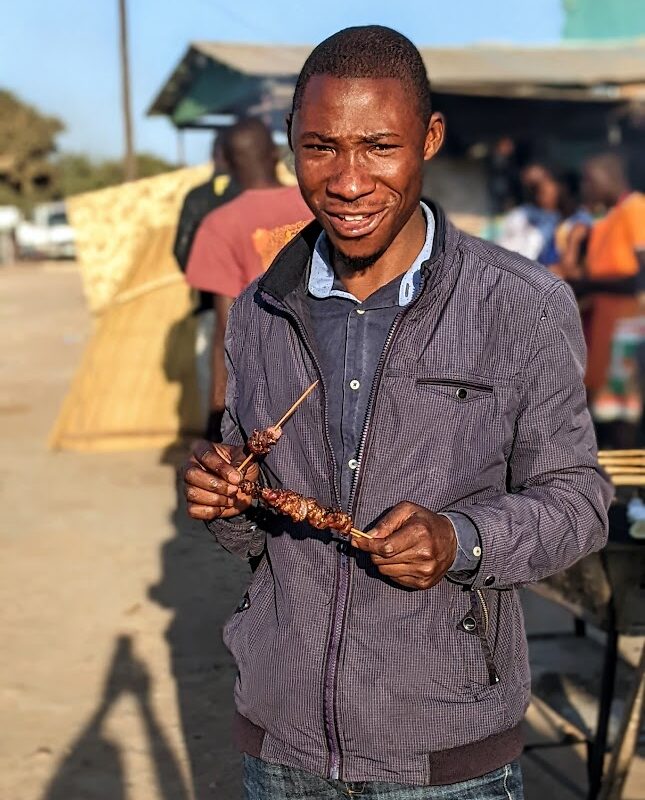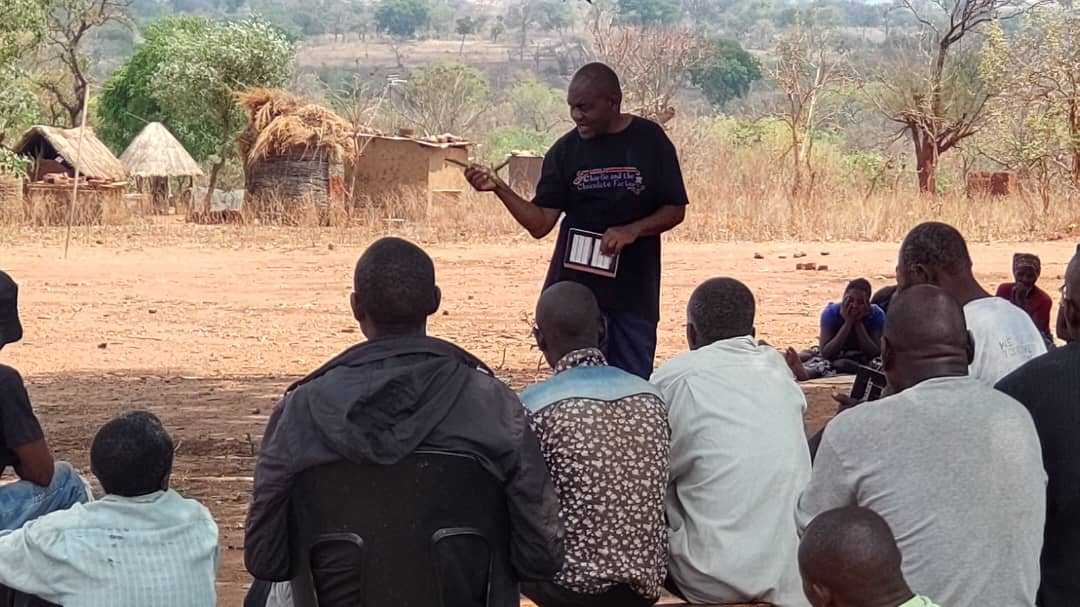Lawson Limao from Word of God Ministries in Zambia has been supported by APF and Operation Agri to train rural communities to make compost. In the midst of Zambia’s cost-of-living crisis, he explains why something as simple as compost is so essential.
You are what you eat
Today, Zambia is in real crisis. The cost-of-living crisis is affecting so many people and dragging the majority down. Perhaps its biggest impact is on our diets. Low salaries and insecure incomes mean most just eat what they can, regardless of whether the food is good, healthy and wholesome. Afterall, you are what you eat.
Commercial farms run by big businesses try and keep the markets supplied but their use of commercial, genetically modified and infertile seed varieties relies on huge amounts of chemical fertiliser. These crops might be fast growing but large-scale industrial farming is leading to deforestation, soil erosion, and land and water pollution. It is pushing small-scale farmers off their land. It is also expensive. To maintain yields, more and more chemical fertiliser is needed but the cost of fertiliser is going up all the time.
Smallholders and fertilisers
You might think that the high food price is good news for poor small-holder farmers in Zambia who would benefit from a better price for their crops, but that is not really the case. Poor farmers still sell most of their crops at harvest when prices are lower to payback debts built up from buying farm inputs like fertiliser and seed, or to pay their children’s school fees. While they sell their crops at harvest when the price is lower, they buy food to feed their family throughout the year, even when the price is high.
While large commercial farms can access government support to buy chemical fertiliser at subsidised prices through schemes like the Farmers Input Support Program, most farmers live on small family farms of just a few hectares and simply cannot access the schemes. The majority of these farmers are also women, and they are hugely disadvantaged. It is a big political issue.
For many years now, people have been taught that the only way to get a successful crop is through using chemical fertiliser, so they spend more and more on it each year. As the soil structure breaks down, they need more fertiliser to produce a crop, so the problem simply gets worse. This pushes prices up and means the percentage of their income a family uses to buy food becomes an even greater part of the overall.


Organic fertiliser project
This is why the project we have been running with support from APF and Operation Agri is so important. We are running the project in Petauke District, in the area overseen by the Nyampende chief. This is in Zambia’s Eastern Province, not far from the Mozambique border, and it is an area heavily dependent on agriculture. Like much of Zambia, maize in the main crop here.
We started by working with local leaders and together we identified 400 farmers to be part of the project. Village headmen and headwomen, the local churches and agronomists were all consulted, and the farmers gathered for training.
We began by taking about the needs of the soil and the crops. We shared stories and people were all in agreement about how worried they were about the future.
How could they continue when the cost of inputs was making their lives so hard? How could they afford school fees, animals or food? Many were cutting down trees and selling charcoal so they could afford to buy chemical fertiliser.
We then taught about how to make different types of organic fertilisers such as thermal compost and organic liquid feeds. Thermal compost only takes a number of months before it is ready and replaces the chemical fertiliser normally used at planting. To make liquid feeds we demonstrated how to mix cow, chicken, pig or goat manure in an old sack and suspend it like a teabag in a drum of water. The organic infusion is so rich it can be diluted and used to feed the crops as they grow.
The project has been a great success as the training was so well received. Afterwards, everyone was saying how using what they thought of as waste to support their soil and their crops was going to be a big transformation. Knowing that another way was possible was going to save them so much.
They asked me to extend the training to other areas in Petauke District where friends and relatives lived so they could also learn these skills. They told us, ‘Uyu utumiki upitilize!’ meaning, ‘Let this work continue!’
Drought affecting Southern Africa
The good news story of the organic fertiliser project’s success has been seriously impacted by the ongoing drought that has affecting Southern Africa this year. We would normally expect rain in December through to February or March, however, this year many farmers are still waiting. The drought is partly due to the ongoing El Niño climate cycle, which has changed rainfall patterns during our growing season, but localised deforestation has made this bad situation worse. As part of the training, we shared how trees can support soil structure, fix nitrogen, and even cool the land which encourages clouds and rain. Please pray for the farmers in the organic fertiliser training project and others across Zambia as they struggle through the current drought.

